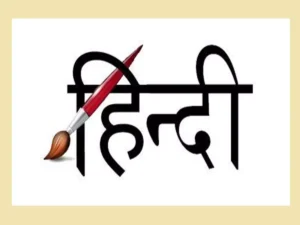
On February 12, 2024, the Indian Parliament achieved a historic milestone by passing the Jammu and Kashmir Scheduled Tribes (ST) Quota Bill along with two other significant reservation bills. This legislative accomplishment underscores the nation’s unwavering commitment to social justice, empowerment, and inclusive development.
The Jammu and Kashmir Scheduled Tribes (ST) Quota Bill represents a watershed moment in the quest for equitable representation and empowerment of marginalized communities in the region. By extending reservation benefits to Scheduled Tribes in Jammu and Kashmir, the bill addresses long-standing grievances and reaffirms the government’s resolve to uphold the rights and dignity of tribal populations.
The passage of the ST Quota Bill reflects a broader commitment to fostering inclusivity and addressing historical injustices in Jammu and Kashmir. It seeks to rectify systemic inequalities and create avenues for socio-economic upliftment, thereby empowering tribal communities to participate meaningfully in the region’s socio-political landscape.
In addition to the ST Quota Bill, Parliament also approved two other reservation bills aimed at promoting social inclusion and affirmative action. These bills exemplify the government’s proactive stance in advancing the cause of underprivileged sections of society and ensuring their equitable access to opportunities and resources.
The passage of the reservation bills underscores India’s pluralistic ethos and commitment to upholding the principles of social justice and equality enshrined in its Constitution. By institutionalizing mechanisms for affirmative action, the government reaffirms its commitment to building an inclusive society where every citizen has the opportunity to thrive and contribute to the nation’s progress.
Moreover, the enactment of these bills reflects a consultative and participatory approach to policymaking, wherein the voices and concerns of marginalized communities are given due consideration. It embodies the spirit of democracy and pluralism, where legislative decisions are guided by principles of fairness, equity, and compassion.
The significance of the ST Quota Bill and other reservation measures extends beyond mere legislative action; it symbolizes a collective resolve to redress historical injustices and build a more equitable society. It underscores the government’s recognition of the unique challenges faced by marginalized communities and its commitment to addressing them through targeted interventions and policy measures.
Furthermore, the passage of these bills is a testament to the spirit of inclusivity and accommodation that defines India’s democratic ethos. It reflects the nation’s collective aspiration to build a society where diversity is celebrated, and every individual is afforded equal opportunities for growth, prosperity, and fulfillment.
The enactment of the ST Quota Bill and other reservation measures is a significant step towards realizing the vision of an inclusive and progressive Jammu and Kashmir. It sends a powerful message of solidarity and support to tribal communities, assuring them of the government’s unwavering commitment to their welfare and empowerment.
Looking ahead, the implementation of these reservation measures will be crucial in ensuring their effective translation into tangible benefits for the intended beneficiaries. It calls for concerted efforts on the part of the government, civil society, and other stakeholders to ensure the successful execution of these initiatives and the realization of their objectives.
In conclusion, the passage of the Jammu and Kashmir Scheduled Tribes (ST) Quota Bill and two other reservation bills by Parliament represents a significant milestone in India’s journey towards inclusive development and social justice. It reaffirms the government’s commitment to upholding the rights and dignity of marginalized communities and underscores the nation’s unwavering resolve to build a more equitable and inclusive society for all its citizens.
Conclusion
In conclusion, the recent passage of the Jammu and Kashmir Scheduled Tribes (ST) Quota Bill alongside two other reservation bills by Parliament marks a pivotal moment in India’s ongoing quest for social inclusion and equitable representation. These legislative measures underscore the government’s commitment to addressing historical injustices and empowering marginalized communities across the nation, particularly in Jammu and Kashmir.
By extending reservation benefits to Scheduled Tribes in Jammu and Kashmir and promoting affirmative action through other reservation measures, the government has taken concrete steps towards fostering a more inclusive and egalitarian society. These initiatives not only rectify systemic inequalities but also signal a broader commitment to upholding the principles of social justice, equality, and democracy enshrined in the Constitution.
As India moves forward, the successful implementation of these reservation measures will be paramount in ensuring that their intended beneficiaries reap the full benefits of socio-economic empowerment and participation in the nation’s development. It will require sustained efforts, collaboration, and engagement with stakeholders to overcome challenges and realize the vision of a more inclusive and progressive society.
In essence, the passage of these bills reflects the collective will and determination of the Indian Parliament to build a nation where diversity is celebrated, and every citizen is afforded equal opportunities for growth and fulfillment. It is a testament to India’s commitment to building a future where no one is left behind, and where the ideals of justice, equality, and fraternity resonate in every corner of the country.





